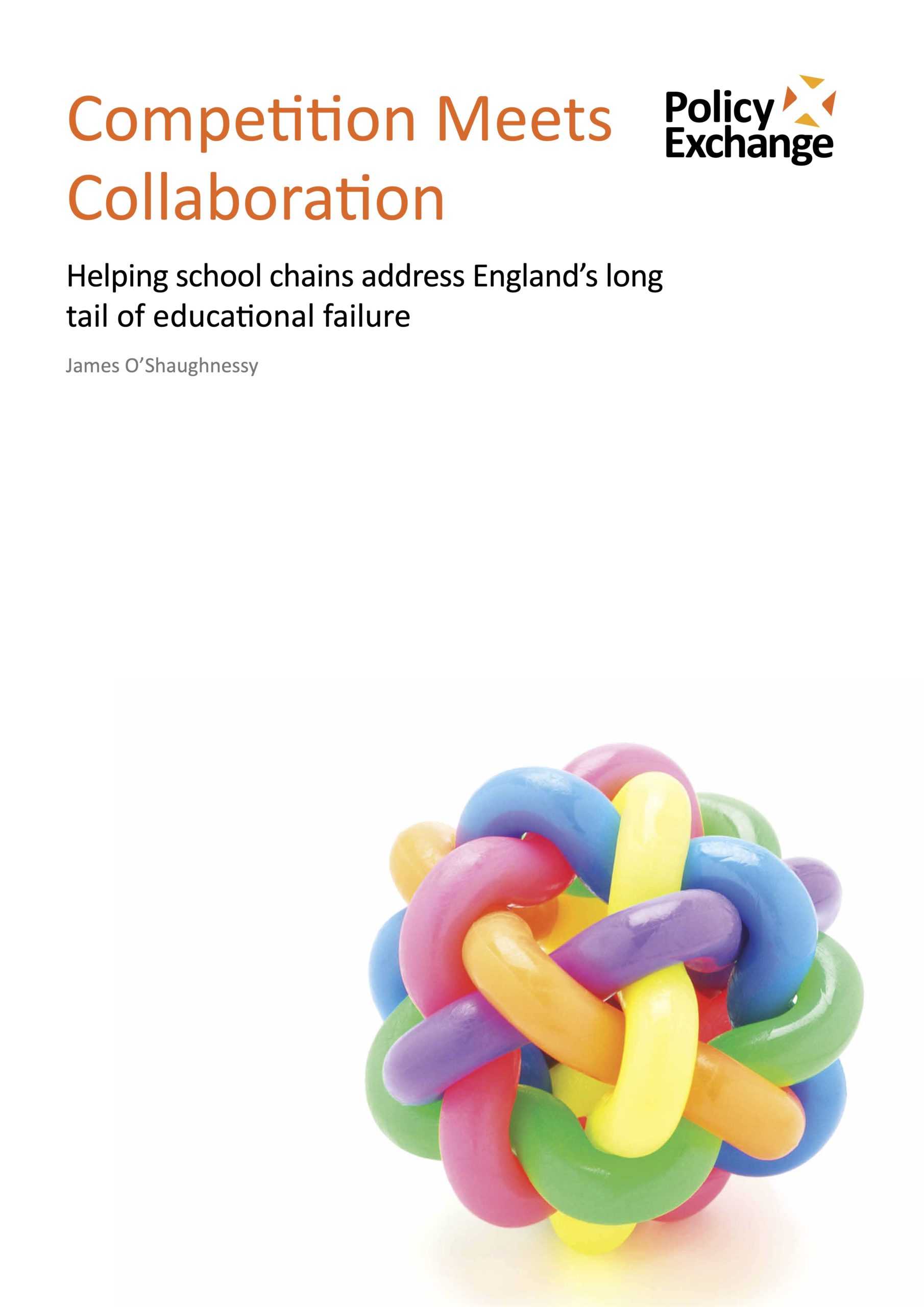
Competition Meets Collaboration: Helping school chains address England’s long tail of educational failure
In his first report since leaving Downing Street, Policy Exchange Visiting Fellow James O’Shaughnessy says that Ofsted’s new, tougher inspections could lead to a fivefold increase in the number of schools being told they need to improve. To deal with this seam of chronic weakness in England’s schools he recommends that a new failure regime – based on Ofsted’s new ‘three strikes and you’re out’ inspection regime – should be introduced to turn around the weakest schools:
- On the first occasion of receiving a ‘requirement to improve’ the school is obliged to become an Academy under a new sponsor
- On the second occasion, the Academy is obliged to join a successful chain. An Academy chain is a group of three or more independent state-funded schools with a shared educational vision, and which are bound together legally, financially and operationally
- On the third and final occasion, the governing body is obliged to hand over the running of the school to a proven educational management organisation (EMO) which would operate the school on a payment by results basis. EMOs are private or not-for-profit providers that run schools under contract to a commissioner, such as a governing body or local authority
This new failure regime would be applied by a beefed up Office of the Schools Commissioner (OSC) and a network of new local school commissioners, themselves appointed and overseen by the OSC.
The report presents evidence showing that not only do Academies work when it comes to raising standards, but that Academy chains can be even more effective at improving results than single Academies. This is backed up by evidence of the effectiveness of school groups in other countries such as Canada, the US, Hong Kong and Sweden. Academy chains can have this impact by enabling the spreading of effective educational practice, such as good teacher training programmes or systems for monitoring pupil performance, and by delivering economies of scale.
To encourage the growth of more and bigger Academy chains the report recommends:
- Capitalising the best chains by creating a new School Chain Growth Fund, modelled on BIS’ Regional Growth Fund, to support chains that want to expand
- Creating a new wave of chains. The National College for School Leadership should be restructured to support the development of chains, and half of the remaining Teaching Schools contracts should be awarded to chains
- Allowing Academy chains to experiment with new forms of governance including smaller, remunerated boards of trustees or governing bodies that mirror the boards of private companies.

